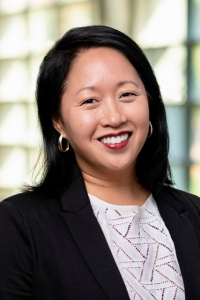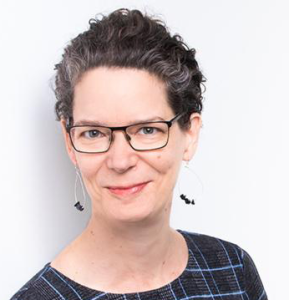Events
SoDa Symposium | SoDa Seed Grant Series: Data Preprocessing Strategies to Enhance Fairness in Machine Learning
Event Start Date: Tuesday, October 21, 2025 - 12:00 pm
Event End Date: Tuesday, October 21, 2025 - 2:00 pm
Location: Virtual / Zoom EST
Abstract:
Data science methods are increasingly being applied to large-scale educational data, but there has been less attention on the possibility of algorithmic bias where algorithms can potentially make predictions that result in decisions that are unfair to certain population subgroups. In this presentation, we present several metrics used for algorithmic bias, discuss how proportions of sensitive groups can impact the presence of algorithmic bias, and provide some preliminary recommendations for researchers.
Bio(s):

Ashani Jayasekera
Presented by:
Ashani Jayasekera, PhD Candidate, Quantitative Methodology: Measurement and Statistics, University of Maryland, College Park
Ashani Jayasekera is a doctoral candidate in the Quantitative Methodology: Measurement and Statistics program at the University of Maryland, College Park. She earned a MS in Measurement, Statistics & Evaluation from the University of Maryland, College Park and a BS in Mathematics from the University of Maryland, Baltimore County. Her research interests include machine learning, natural language processing, the analysis of complex data structures, as well as the intersection of data science and QuantCrit. Recent research projects include work on the efficacy of supervised machine learning in causal inference, the utilization of propensity scores to provide measures of school quality, and the impacts of missing data on social network models.

Tracy Sweet, PhD
SoDa Seed Grant Award Recipient:
Tracy Sweet, Associate Professor, Quantitative Methodology: Measurement and Statistics, Department of Human Development and Quantitative Methodology
Tracy Sweet is an Associate Professor in the Quantitative Methodology: Measurement & Statistics (QMMS) program in the Department of Human Development and Quantitative Methodology. She completed her Ph.D. in Statistics at Carnegie Mellon University and a M.A. in Mathematics at Morgan State University. Her research focuses on methods for social network analysis and machine learning. She serves as the Associate Director of Research for UMCP for the Maryland Longitudinal Data System Center and is currently overseeing projects applying data science and statistical methods to large-scale educational data. Finally, Dr. Sweet is committed to improving equity in the fields of statistics and quantitative methodology.

Frauke Kreuter
Moderated by:
Frauke Kreuter, a Professor in the Joint Program in Survey Methodology and Director of the Social Data Science Center at the University of Maryland. She also serves as Chair of Statistics and Data Science in Social Sciences and Humanities at Ludwig-Maximilian University of Munich.
The SoDa Center at UMD
SoDa Symposia highlight the diverse challenges and opportunities in the emerging area of Social Data Science. Combining insights of SoDa researchers and partners from UMD and around the world, these regular virtual events showcase research and expert commentary about advances and open problems in the use of surveys, administrative, and trace data to understand and shape the social world we live in. Ranging from technical challenges of gathering high-quality data, ethical management of social data at scale, or examples of the power of social data science in education, business, government, or civic life, SoDa Symposia provide an opportunity for a broad audience of researchers, students, and practitioners to learn more about the potential of social data science to change the world.
Tracy Sweet SoDa Seed Grant Proposal Abstract:
The following proposal focuses on statistical methodological research for improving racial equity in the social sciences. Much of what we know about achievement differences between racial groups comes from large-scale statistical analyses. What if the data science methods we are using are contributing to this inequity? I propose two lines of inquiry to both better understand deficits in our current approaches that will ultimately improve data science methods for racial equity research. My proposed work focuses on race and educational outcomes, but the methodology and knowledge created by this research will be applicable to all minoritized groups as well as a wide range of disciplines in the social sciences.
To determine if current methods are working for racial equity, I will focus on the following goals:
Aim 1: How can we determine if data science methods are equitable for all racial groups?
Aim 2: To what extent are constructs (e.g. intelligence, motivation) accurately measured among different races?
Speaker(s): Ashani Jayasekera, Tracy Sweet, Frauke Kreuter